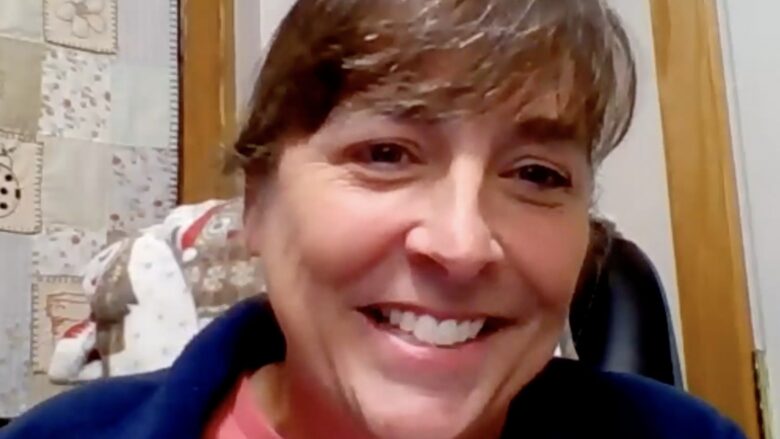-
 Spotted Lanternfly (SLF) adults are in almost every county now. Honey bees will work/forage on the Spotted Lanternfly honeydew. In some areas where SLF is plentiful the colonies were even able to gain winter weight. Some beekeepers choose to extract the fall flow for honey sales. If you are moving bees in and out of the state, please acquire a permit through the Maryland Department of Agriculture (MDA) and continue to monitor and look for egg masses on your hives and equipment.
Spotted Lanternfly (SLF) adults are in almost every county now. Honey bees will work/forage on the Spotted Lanternfly honeydew. In some areas where SLF is plentiful the colonies were even able to gain winter weight. Some beekeepers choose to extract the fall flow for honey sales. If you are moving bees in and out of the state, please acquire a permit through the Maryland Department of Agriculture (MDA) and continue to monitor and look for egg masses on your hives and equipment. -
Goldenrod could be seen all over this Fall, but did it give nectar? Due to drought in some parts of the state, it did not contribute much. I know I did not get the butterscotch/sour smell in the colonies like I have in years past. Some locations in Maryland were in a nectar dearth from August onward!
-
I am not seeing fall bee Paralytic Mite Syndrome (PMS) at the level it has been present in recent years. It appears that varroa mite management plans and more education on robbing screens may be having a positive impact! Education is the key! Also, if you have a very strong colony, still rearing high numbers of brood, a second mite treatment may be needed if the first treatment only brought the mite numbers down to threshold.
-
Some varroa treatments can cause brood death and you also want to be sure the queen is still effective after your varroa control has been removed. Check for eggs and young larvae to ensure that your colony is still queenright.
-
Calls and emails are still coming into the MDA for sightings of what people think is the "Murder Hornet." We started out the year having fielded far less "Murder Hornet" inquiries UNTIL the invasive Yellow Legged Hornet Vespa velutina was found in Georgia just outside of Savannah. We had received 27 inquiries prior to the invasive find in Georgia. Then... since the find in August we have fielded 97 inquiries about Northern Giant Hornet or Yellow Legged. Almost all were identified as Vespa crabro/European Hornet and a few were identified as Cicada killers. We do not have the Asian Giant Hornet or Yellow Legged Hornet here in Maryland and we are continuing to monitor for it.
-
Field Watch/Bee Check: This voluntary beehive mapping tool is going strong. There are more beekeepers registered than any other crop!
-
Thank you to all the beekeepers that participated in the USDA/APHIS National Honeybee Survey. We were able to complete all 24-sample sites. AGAIN, thank you to all who were willing to participate. Anyone willing to participate in 2024, please let me know. You must have 8 colonies located in the same apiary to qualify.
-
Mack and Tukka, Maryland's American Foul Brood (AFB) detection dogs, are back at work. We have been training and preparing to get back into the field, and are working on scenting and stamina now. Maryland's AFB dogs will be back into inspections as soon as the weather hits 50 degrees F and below. We will work on commercial beekeepers moving to California first.
-
If you have or are starting a beekeeping management business, or if you are being paid to apply ANY miticides to someone else's colonies, you MUST have a pesticide applicators license. KEY WORDS HERE: If you are being paid, if you do not own the bees. This does not apply to mentor/mentee relationships. This applies to Apiary management businesses.
-
We will be completing the mailing of the 2023 Apiary Registration Form in December. Please update, sign and return your registration forms as soon as possible. USPS, Scan then email, Fax... Many ways to return the form.
-
We caught 3 honey bee swarms at the port of Baltimore. The swarms of unknown origin were eradicated. We have put out swarm traps at the Port of Baltimore where the cranes load and unload the cargo freighters. The swarm traps are monitored and the lure is refreshed biweekly. Swarm traps have also been placed at the BWI Thurgood Marshall Airport. We have hung traps around the Fed Ex and the Amazon compound. The same protocol applies: we monitor and refresh the lure biweekly. We are looking for any Apis species and their parasites that may have hitched a ride on shipments.
-
Final Note: The "HUMAN" Apiary Inspectors are winding down ... but the "CANINE" Disease detectors are in training mode getting ready to start back to work.

Cybil Preston
Chief Apiary Inspector
State Apiarist
EAS Certified Master Beekeeper
Certified Maryland Honey Judge
Maryland Department of Agriculture
50 Harry S. Truman Parkway
Annapolis, Maryland 21401
cybil.preston@maryland.gov
(410) 841-5920(O)
(410) 562-3464 (M)
Website
[Return to November 2023 BeeLine newsletter]

